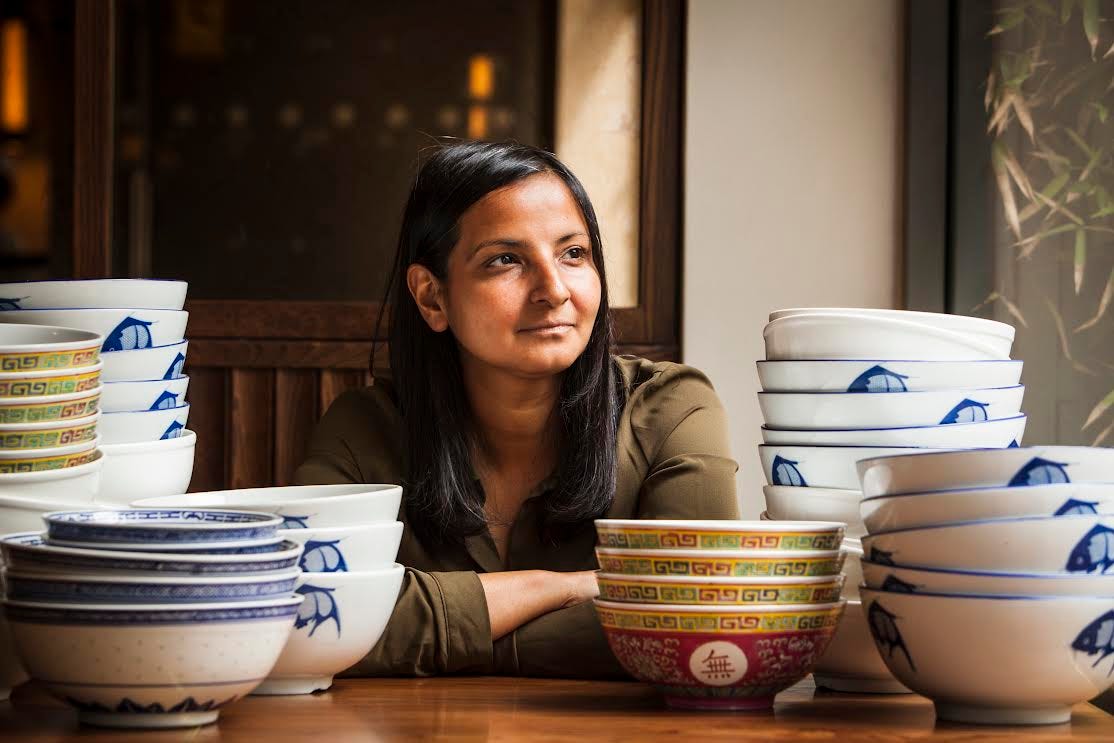Hello friend,
Sometimes, there's a disconnect between lived experiences and what we think we know. For example, we are told over and over again that it is lovely to eat with other people. And sometimes, it really is! But when I personally think back, a great number of shared meals were not particularly happy for me. Awkward pack lunches at primary school, trying to avoid the canteen at secondary school, overwhelming family lunches with distant relatives I didn’t know or fraught family dinners with stressed parents, forced work dinners, social anxiety at friends’ birthday meals, sitting around people I didn’t know at wedding breakfasts because the bride and groom thought it would be ‘fun’ to mix up their friendship groups…. The list continues. Was it the same for you? Surely, I can’t be the only one…
Because, sometimes, we’re just not in the mood to eat next to someone else. Sometimes, we simply don’t know or like the other person well enough to want to share the intimate act of eating. Sometimes all you want to do is eat quickly and impolitely, or not have to make small talk. And so, these two different experiences of what eating with others should feel like according to societal expectations, and what it actually feels like can be different.
But how do we get to the bottom of this truth? Is eating alone good or is it bad? Is eating with others good or is it bad? Well, we can never know for sure, it’s all contextual, it’s all individual. But for me, bookworm that I am, I will always head to research, academia, studies and facts first to see if there are common threads between how people feel about a subject. The only problem is is that there isn’t a huge amount of literature about eating alone. So far, over the course of this podcast I have interviewed academics such as a psychotherapist, a psychologist and a philosopher, all who have carried out important and enlightening research into being alone. But none of these fields look into eating alone specifically. Last year, however, I came across food anthropologist Dr Mukta Das. Mukta’s work concerns commensality and hospitality, but in order to get the full spectrum of these topics, she must also study the opposite of these, which is eating alone. As far as I can tell, she is one of the very few anthropologists looking at eating alone in an academic setting. So, of course, I had to invite her on the podcast!
It was a pleasure to talk to Mukta during Episode 16, it was the balance that I was looking for in this discussion and made me consider eating alone, not in isolation of itself but in its relationship with eating socially.
If you are interested in learning more about Mukta’s research, head to her website. She also has a podcast hosted with Andrew Wong called ‘XO Soused’ which I thoroughly, thoroughly recommend.
Here’s the transcript, it’s very long - interview with Dr Mukta Das and me, Julia Georgallis:
Hi, welcome back to the How to eat alone podcast, with me, Julia Georgallis. I’m a baker and I write about food. This podcast discusses issues surrounding loneliness, solitude and solo dining. In it, I talk to different people about various aspects of being alone. Every episode comes with a recipe based on a meal that we’ve discussed during the show and each of these recipes are designed to be cooked and eaten by one person and one person only, because most recipes are written for two or more people, which is a bit annoying for the solo cook. Think of this podcast as your cooking and dining buddy.
One thing that has been discussed quite a lot over the last 15 episodes of this podcast is that eating and being alone often come with negative connotations, but that actual lived experiences, so real life accounts of being and eating alone are not always all that negative. So something that I’ve always tried to get to the bottom of is where’s the evidence, where’s the research to tell us what actually is going on? Is eating alone good or is it bad? What’s the answer. From an academic point of view, during this podcast series, I’ve spoken to a psychologist, a psychotherapist and a philosopher and those have been really enlightening conversations about solitude and loneliness, but none have explored their disciplines from the perspective of eating alone. I mentioned this is a newsletter that I wrote a few months ago, but I have started to notice more and more articles and radio shows and general conversations in the media about eating alone and last summer I came across an article in by the food journalist Clare Finney which looked at the rise of eating alone and in it there was this interview with, anthropologist, Mukta Das.
Mukta has done lots of research on cultural ideas of eating alone. And I thought that anthropology, which looks at the study of people and cultures and societies, might just be the perfect academic discipline to really delve into the cultural significance of eating by yourself. So I reached out to Mukta and she agreed to talk to me about her work on the anthropology of eating alone. Now, her work doesn’t actually focus on just eating alone, she actually focuses on the idea of commensality, which is really really fascinating. Commensality means the study of shared eating, the word literally means eating at the same table - so from the latin word comme which is with and mensa which is table. But by studying how we eat together, we also have to study how we eat alone as well.
JG: So your work from an anthropological perspective is not based always about eating alone.
MD: And in fact, the reason why it’s come to the forefront of my mind is because my main focus is hospitality and commensality, so, pretty much the opposite, so it’s why people come together and how they come together and how they do that through the medium of food right. So it’s like the reverse of it if you like. And I'm not alone, anthropologists across the world tend to focus their attention on that problematic. So many anthropologists, including myself, problematise how we eat together, so in public discourse, eating together is like super super ‘oh it's the ideal,’ we should do it, we all love it when it happens and all this kind of thing but, all of the anthropological studies and you know my work is part of that cannon, is all about how difficult it is and how many rules there are and how you can quickly slip up and be ostracised your community, how dangerous it is… All sorts of research suggests that actually eating together is really difficult if not dangerous. It’s incredible how much we as an academic community have problematised it. But, the loud silence is eating alone good? We never actually asked ourselves that question properly. And so I’m sensing this silence and the silence is growing louder and louder, especially after Covid. So I’m really interested in this aspect, what are the positive aspects of eating alone and what’s shifted I guess.
JG: I’ve never ever thought about it from that perspective because I think we are just bombarded by the idea that we have to do everything together all the time and that’s the only way that anything could ever be pleasurable in any way, you know, together and I just think that’s so impractical actually.
MD: Well I don’t know about you, Julia, but when I was growing up and I had to eat with my family or I had to eat at school together, with like whatever cliquey group and stuff like this, it always felt a bit oppressive and that I was really surveilled. I just didn’t enjoy my meals in those situations. The minute I moved out I was like ‘HURRAH!’
JG: I mean I have thought about that before in that respect because I did not enjoy school and school dinners and family dinners were always very kind of like overwhelming for me, but I never really thought that maybe other people felt the same way, you know, actually, that’s a very good point that it can be quite oppressive and there’s something really freeing about just cooking for yourself, eating by yourself on your own time, you can eat what you want.
MD: Absolutely. And the problem is is I guess, and I’m part of the problem, because I realise that we haven’t done a lot of the cultural research to look at the benefits of that because actually, anthropologists, we tend to go out into the ‘field’ and I’m doing air quotes now, and as a result when we as food anthropologists when we do our research we’re usually together with people, eating together, even if it’s just one on one so to then do a study on how people eat alone but the research method is largely to be together with that person to observe it, how does that work? Because we’re going to change the feel just by being part of that meal experience, even though that would be the key thing in a research context. So it’s a puzzle that kind of has to be solved and there are ways to do it. You know, we could get people to be auto ethnographers so they do their own ethnography and report back and things like this and I can put a diary out there about all my meals and how often I eat alone and what that feels like. But it feels fairly solipsistic so, I dunno there’s a real interesting issue or interesting challenge for us to try and capture this really important cultural phenomenon without interfering with how it’s done by being the researchers who are in the household observing it being done.
JG: How long has anthropological research into eating alone been going on for? Is it something quick new or is it something that’s been happening for a long period of time?
MD: There’s been a generational shift, so since the new Millennium I think we’ve been turning a little bit more to it but gain we’re part of the problem because what we’re doing is problematising it too, so for example we’ll all be like, ‘oh well corporate culture, we all work from 9 - 9 and we don’t have time for lunch breaks and we don’t know how to get home in time to cook, and so corporate culture is a problem, gaming culture is a problem, we never put down our controllers to do blah blah blah… or they’ll be kind of an over surveillance or an over emphasis on certain types of cultures across the world so for example East Asian cultures, Korea, young people in Korea, you people in Japan, young people in China, somehow there’s been a sort of public discourse around how frequently they live and eat alone and how atomised their societies are. When really that’s just a really broad, simplistic generalisation and that’s not really what’s happening across the whole of that country and there’s a different nuance to that, so I think just by focusing on something we can end up displacing everything else so we then create corporate culture as the problem or we create gaming culture as the problem and we’re not really asking ourselves how do we acknowledge this big normative shift towards people find that eating alone is actually quite nice, quite beneficial really, I don’t think we’ve captured that very well.
JG: We haven’t really captured that very well. Everyone’s still a little bit afraid of it.
MD: It’s true. I mean we all do it. Nearly 80 - 90% of our meals are eaten with some degree of alone time, we’re adjacent to somebody we don’t really want to be with or we are eating alone or whatnot, so a significant number of our meals across our week are eaten alone whether it’s at our desk or on our way to work, you know, snacks, to and from journeys. It’s difficult for us to quantify but it’s happening all the time. The issue is that Covid19 was a moment where I think we had to contend with it a lot. We were either eating alone because we living alone or we were eating with people and we were forced to do so because we were in a bubble and so the choice of who we were eating with was a little bit more restricted than usual and so that may have at the time caused a little bit of a shift in how we perceived solo dining because actually it had to happen to keep us all safe or at least restricted social dining had to happen to keep us all safe so we had to embrace it in a way that we haven’t had to do so before and that’s a global moment. But, I don’t know, I think the ripple effects from that might take a while to filter through. The kind of people who would be the kind of arbiters of good sense in this case, or the kind of authenticity police, as I like to think of them, you know, the cultural arbiters of what is deemed right or wrong in terms of how we eat and if we eat together, I think it will take a while for that ripple effect for that to reach the people who are controlling that discourse by accident or by design - then we might be able to see the shift. But it may well be a few years later that we finally get to see cookbooks that are seriously, not just apologising for sharing recipes for eating for one but are celebrating it in more and varied ways across cuisines. There'll be far more media and more transmission of knowledge that can help people eat and cook and dine alone. So yeah, maybe the ripple effect has yet to be felt properly in the UK.
JG: You briefly touched on the idea that in Korea, in Japan, in China there are discussions about eating alone. Why are those Asian countries talking about eating alone a lot more? And how do attitudes change to eating alone in different parts of the world do you think?
MD: I guess it depends on what kind of crises you’re contending with. There are various crises. We worried about feeling lonely, are our elderly well socialised, are our children well socialised. In East Asia there are a generation of young people growing up in what are termed as Collectivist societies, but I don’t think… again, it’s a bit of a stereotype but nonetheless, there’s an idea that East Asian societies are collective, they eat together, there’s a massive lazy Susan in the middle of the table and you can imagine all these many many dishes and a huge family all around and so there’s this picture in our head about East Asian society that actually a lot of people of a certain generation in these countries also want to embrace as an ideal too. And so when a younger generation comes along and some of their social norms are slightly different, it’s a crisis. There’s a debate within societies wondering how well young people have been socialised into a more collective space, even if that collective space is a little bit… how can i put this… a little bit constructed. And so there’s that. All countries have a crisis of some kind around solo dining and that’s the problem is that we are always talking about it, or largely talking about it in negative terms.
JG: I think of collective cultures in different parts of the world like South Asia or the Mediterranean, are those conversations being had there too about eating alone?
MD: I think probably there is a sense that the discussion around eating alone remain negative regardless of whether or not you come from a collective… quote unquote collective society, it’s everywhere right?
JG: Yeah of course, everyone has a collective culture I suppose in some way or other.
MD: Exactly, and some meals are sacrosanct, right, even if you are living in nuclear families, you’ll maybe get together on a Sunday afternoon to have a more extended family lunch or a get together or Thanksgiving, there are collective moments in other kinds of societies, but it’s not so much that all of these discourses are different, because they are, as I said the crises are slightly nuanced in different countries, I don’t think we’ve been able to find a positive language around solo dining and solo dining and solo dining seems like quite a new term anyway which is more neutral. There’s other things around collective family meals, groups of friends getting together, the imagery, the intonations, the language around it, the feelings that these terms engender, you don’t get that same sense of feeling with the vocabulary around solo dining. You’re starting to get a sense of, ok, well mindful eating, is an individualistic process but you can have adjacent mindful eating but you can’t really mindfully eat as a group it has to be an internal process, so there is that but even then it has a slightly selfish undertone, ok you can mindfully eat that’s fine but how is that benefitting other people and, you know, your socioeconomic group might be finding mindful eating really really easy, but other people are rushing around doing four jobs.
JG: Yeah so it’s not always possible.
MD: There does feel to be, it feels a little more apologist than it should, I dunno. There’s kid of a lack of a positive angle around it still and I think a few years down the track these ripples will probably provide some neutrality or positivity around it.
JG: Following on from that, we have lots of different rituals, collectively, eating for holidays or for special occasions, but are there any rituals for the solo diner that you’ve come across?
MD: That’s a really interesting question because I think ritual and habit are very different things but it’s an interesting tool to think through, because we know that we eat alone a lot of the time, so our habits are maybe grab something out there, bring it to work, eat it at your desk, so the habit forms that most times you’re eating at work you’re probably at your desk, you haven’t stopped screen time, you’re still going, checking your phone, all that kind of stuff. Those are habits. Rituals imply something a little bit more elevated, right? And so, my sense is that if people do ritualise some elements of them eating alone, it’ll be more positive right? So the ritual will be closing the laptop, putting the phone away, having a nice table setting, you can imagine it’s all for the kind of stuff that you would probably do for other people and with other people but you’re actually doing it for yourself and a more internal perspective. That still doesn’t quite address eating alone in all of its glory, right, because what you’re doing is simply elevating the fact that you’re alone but you’re using the rituals of group dining. So I think people that do that, they acknowledge that and that’s fine, that’s brilliant as long as they’re happy. There are other rituals out there that I think we should be celebrating too and I think a lot of that’s going to be individual and this is the interesting thing because I’d like to do some kind of cross cultural study where we look at what kinds of habits do people have when they’re solo dining that they elevate themselves into ritual? And they could be really different things! It could be the choice of ingredients or how greasy you want your food to be, to actually doing something that’s quite… that suits you very well. Maybe you’re not comfortable sitting and eating and you prefer to stand or things like this. It’ll be, in some ways, as dynamic as anything can be in food anthropology, it’ll be so individual and so interesting, it should be a study in itself, but at the moment i think there’s a big question mark over rituals for solo dining for some of the reasons that I already said where it’s difficult for anthropologists to break open that black box because we all interrupt that but also how far people think about their habits as rituals and what constitutes a good thing to do all the time or most of the time when you are eating alone and that in itself is what delivers that nice feeling of eating alone.
JG: My final question to you is the question I ask everybody is what do you eat when you’re by yourself!
MD: Cos I eat by myself at work. I tend to work with restaurateurs so I end up eating at the pass, whatever they’ve decided to feed me. I mean, that’s brilliant, so that’s great, but when I have all the choice in the world it’ll be a really disgusting takeout that’s dripping in fats and cheeses and all sorts and I’ll run home to eat it, even if it’s tepid, I need to eat it at home so I can just like turn on the tv and have it in my lap, you know little paper napkin tray and then just, there’s a habit there! And it’ll definitely be in front of the TV because I can’t think of anything better to unwind and then a really sloppy takeaway.
JG: I love takeaways by myself, it’s the best thing, it’s so luxury.
MD: It really is you know and there’s no one else judging you for that and most of the time I’m eating fairrrllly healthily so those are kind of blow out opportunities for me so I embrace those and they’re my favourite, so there is some ritual kind of wound into that.
JG: Yeah, I can see that
JG:
I’d like to say a big thankyou to Mukta for talking to me, if you want to find out a bit more about her work, I’ve posted some links to the episode page and show notes. She also has a podcast called XO Soused with Andrew Wong, which I thoroughly recommend.
The thing that struck me about my conversation with Mukta is that there has been such a negative chat, so much negativity surrounding eating alone but we never problematise eating TOGETHER, we never talk about the bad sides of eating with other people. So no matter what we think about eating alone, whether we like to do it or not or whether we think it’s a good thing or a bad thing, my conversation with Mudkta has started to make me think about eating together in a negative light and I agree with Mukta when she says eating with others can be downright dangerous sometimes, you know from a cultural point of you, I was thinking of all the social faux pas I might have made whilst eating with people and I’ve been thinking alot about eating with people from a damaging psychological point of view, not to over dramatise it, but a lot of the hangs up I was given surrounding eating are from eating with other people I suppose and then, how actually physically dangerous eating together can be. So like we can catch all kinds of bugs or maybe even food poisoning when eating with other people. And that is the main takeaway from this conversation - that we also need to explore eating alone but also to be open minded to the fact that eating with people is not always good and that reframes eating alone, I think.
So, I know that most of these recipes come with a recipe for one but Mukta’s ideal meal for one was actually a takeaway. So I’ve got your homework for you for this episode and that is to order yourself a takeaway. I don’t care what it is. Could be a Chinese takeaway. Could be a cheeky Nandos, in which case you have to eat it with your hands I reckon, no cutlery allowed. Eat it on your own. The show notes and information about this episode, as well as all other episodes are up on the Howtoeatalone.substack.com for you to have a look at. If you like the substack, you always can subscribe to it, it’s free for now and you can also follow the podcast on instagram, the handle is @howtoeatlaonepodcast. If you like the how to eat alone podcast, please consider giving it a 5 star rating wherever you listen to your podcasts from or you can share it with someone who you think might like it too! I hope you’ve enjoyed being alone with me, thanks for listening and I’ll see you next time for the next episode of HOW TO EAT ALONE.













Share this post